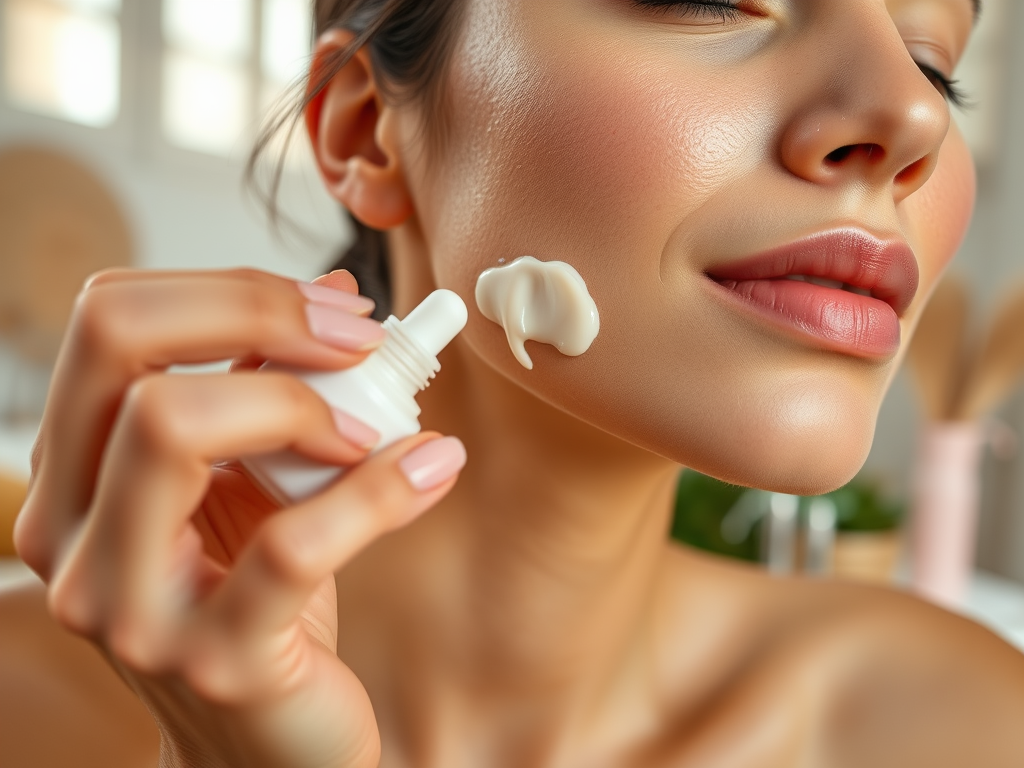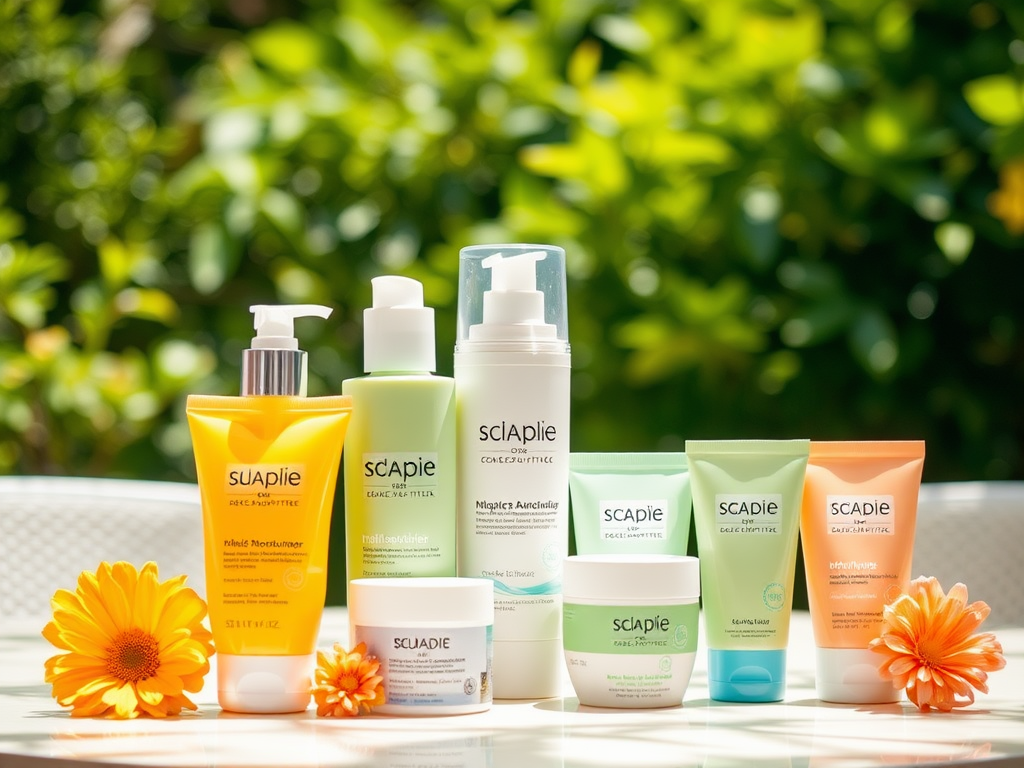In the intricate world of skincare, the debate surrounding whether to apply moisturizer first or sunscreen often baffles both novices and enthusiasts alike. Every skin type is unique, embodying different needs and challenges, which only complicates matters further. Proper hydration and sun protection are pivotal components of any skincare routine, yet there’s an ongoing discussion on the correct order in which to layer these essential products. As the skincare industry evolves, so too do the recommendations, making it imperative to dig deeper into what really works for your skin type. Understanding the science behind moisturizers and sunscreens can help demystify the issue. This guide is designed to provide clarity, ensuring you not only choose the right products but also apply them in the most effective manner.
Understanding the Importance of Moisturizers and Sunscreens

Moisturizers and sunscreens serve different, yet complementary, purposes in a comprehensive skincare regimen. While moisturizers hydrate and nourish the skin, sunscreens act as a barrier against harmful ultraviolet (UV) rays. Failure to use either can result in dry, damaged skin or increased risk of sunburn and long-term skin conditions. Understanding this relationship is crucial for anyone looking to enhance their skincare routine. It’s also essential to recognize that your skin type influences how you should apply these products. The benefits they offer can significantly improve the overall health and appearance of your skin when utilized correctly.
The Role of Moisturizers in Skincare

Moisturizers function primarily to retain skin moisture and ensure the skin barrier remains intact. They contain various humectants, emollients, and occlusives, working together to maintain hydration. An effective moisturizer can prevent issues such as irritation, dryness, and premature aging. The unique needs of different skin types necessitate careful selection of moisturizing products to ensure optimal results. For instance, those with oily skin benefit from lightweight, gel-based moisturizers, while dry skin types often require richer, creamier formulations. Thus, the choice of moisturizer should always reflect the specific demands of your skin type to achieve the best results.
When selecting a moisturizer, it’s essential to consider the ingredients and their benefits. Here are some advantages of popular moisturizing ingredients:
- Hyaluronic Acid: A powerful humectant that attracts moisture, ideal for all skin types.
- Glycerin: Another humectant that also helps to soothe and protect the skin.
- Ceramides: Vital for restoring the skin barrier and locking in moisture, particularly beneficial for dry and sensitive skin.
The Role of Sunscreens in Skincare
Sunscreens are essential for shielding the skin from harmful UV rays, which can lead to sunburn and long-term skin damage. They work by absorbing, reflecting, or scattering sunlight, thus preventing the rays from penetrating the skin. The importance of daily sunscreen application cannot be overstated, as it protects against skin aging and reduces the risk of skin cancer. Different sunscreens cater to various skin types and concerns, which is crucial for maximizing their benefits. Moreover, failing to protect your skin can undo all the hard work you’ve put into maintaining its health. Therefore, integrating sunscreen into your skincare routine is non-negotiable.
Understanding the two primary types of sunscreens can significantly impact your choice:
| Type | Description | Skin Type Suitability |
|---|---|---|
| Chemical | Absorbs UV rays, transforming them into heat, which the skin then releases. | Most skin types, but may cause irritation for sensitive skin. |
| Physical (Mineral) | Reflects UV rays and begins working immediately upon application. | Best for sensitive or reactive skin types. |
The Moisturizer vs. Sunscreen Debate
The ongoing debate about whether to apply moisturizer before or after sunscreen often hinges on personal preference and skin type. Some argue that applying moisturizer first allows for better absorption, while others maintain that sunscreen should be applied directly to clean skin for maximum effectiveness. Each argument carries weight, making it essential to establish what works best for you. Factors influencing this decision can include your skin type, the specific products in use, and environmental conditions. Testing both methods on your own skin can reveal which application order results in optimal hydration and protection. Therefore, knowing your skin type is crucial in deciding how to approach this layering process.
Different Skin Types and Their Needs
Every skin type presents unique challenges, requiring specialized products and application techniques when it comes to moisturizers and sunscreens. Tailoring your routine to address the distinct requirements of your skin type can enhance overall efficacy and improve your complexion.
Oily Skin
Individuals with oily skin often struggle with excess shine and breakouts. To combat these issues, a lightweight, oil-free moisturizer can help hydrate without adding extra shine. You should also look for sunscreens that offer mattifying properties to control oil production throughout the day. Incorporating non-comedogenic products is vital for preventing clogged pores.
Dry Skin
For those with dry skin, the right moisturizer can be a game changer. A richer, more emollient moisturizer helps lock in hydration and soften the skin’s surface. Layering a thick moisturizer before applying a broad-spectrum sunscreen ensures your skin is adequately protected and nourished. Look for sunscreens that contain hydrating ingredients to give an additional moisture boost.
Combination Skin
Combination skin poses its own set of challenges, often requiring different treatments for different areas of the face. A balanced moisturizer that addresses both dry patches and oily zones is key. Sunscreens that provide moisture without making the oily areas shine can ensure optimal skin health. Utilizing targeted treatments for specific areas can help further refine your skincare routine.
Sensitive Skin
People with sensitive skin need to be particularly cautious with their product choices. Opt for fragrance-free, hypoallergenic moisturizers and sunscreens that minimize irritation. Products containing soothing ingredients such as aloe vera and chamomile can offer additional comfort. Patch testing new products before full application is recommended to avoid adverse reactions.
Tips for Layering Products Effectively
To ensure optimal effectiveness, it’s crucial to layer your skincare products appropriately. Start with a clean face, applying the moisturizer first to create a hydrated base, followed by sunscreen to seal in moisture and protect from UV rays. When layering, allow each product to absorb into the skin for a few minutes before applying the next. The quantity of product used is equally important; generally, use about a nickel-sized amount of sunscreen for your face. Lastly, remember that sunscreen should be reapplied every two hours, especially if you’re spending time outdoors.
Here are some quick tips for applying your products:
- Use gentle, upward strokes when applying moisturizer.
- Apply sunscreen liberally and evenly to all exposed skin.
- Allow each layer to absorb before applying the next for maximum efficacy.
Conclusion
In summary, both moisturizers and sunscreens are integral components of an effective skincare routine, and the order in which you apply them can influence their efficacy. Understanding the distinct characteristics of your skin type will guide you in selecting the most beneficial products. Whether you choose to apply moisturizer first or sunscreen largely depends on personal preference, but a tailored approach will enhance your skincare experience and results. Ultimately, the goal is to create a harmonious balance that ensures your skin remains hydrated and protected from environmental aggressors.
Frequently Asked Questions
- What is the best order for applying moisturizer and sunscreen? Apply moisturizer first, then sunscreen.
- Can I skip moisturizer if I have oily skin? No, even oily skin needs hydration; opt for lightweight products.
- Should I reapply sunscreen if I’m wearing makeup? Yes, consider a setting spray with SPF or a powder sunscreen for easy reapplication.
- What if my moisturizer already has SPF? If your moisturizer contains SPF, it’s still advisable to apply a dedicated sunscreen for full protection.
- How often should I apply sunscreen? Reapply every two hours, or more often if swimming or sweating.